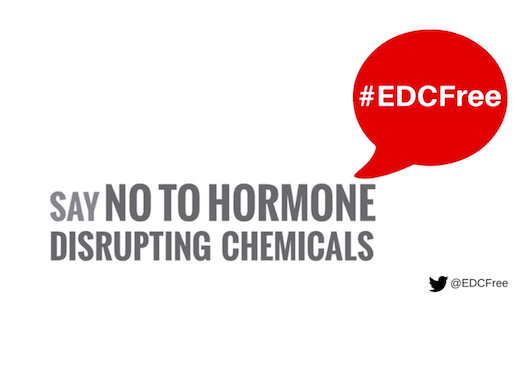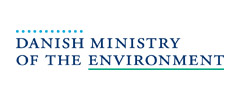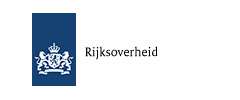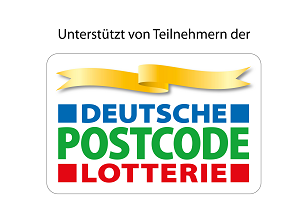EDC-Free Coalition Letter to Head of European Commission
WECF co-signed a letter of the EDC-free Europe NGO coalition. The letter urges President Juncker to present EDC criteria based on best available scientific evidence, excluding potency.
08.06.2016 |

To: President Jean-Claude Juncker, Head of the European Commission
CC: EU Commissioners, EU Environment Ministers, and EU Health Ministers
Dear President Juncker,
On 15 June, you and the EU College of Commissioners will be taking a major decision on the criteria to identify Endocrine Disrupting Chemicals (EDCs). We write to you about this decision as representatives of society, and members of 70 organisations from the EDC-Free Europe coalition across the EU and beyond. Our public interest groups include public health and cancer prevention advocates, health care professionals, consumers, farmers, and environment and health organisations.
We are expecting from you and your colleagues that:
- The EU Commission will uphold its obligations under specific EU laws and under the Treaty on the Functioning of the EU;
- The EU Commission will take up the best available scientific evidence, and;
- The EU Commission will think and act effectively to move the EU into a more dynamic, innovative, healthy and environmentally sustainable industrial and agricultural future.
a) Will the EU Commission uphold its obligations under the TFEU and under 1107/2009 and 528/2012?
The obligation of the EU Commission is to now decide on scientific criteria by which endocrine disrupting properties can be IDENTIFIED. This means any potential text changes beyond pure identification, such as potency or ‘hazard characterisation’ (see below), would change the balance which the law strikes between protection of human/animal health/environment and the internal market and would be unacceptable and illegal, as per the EU court of justice ruling in December 2015.
b) Will the EU Commission acknowledge and incorporate the best science in its decision and in the criteria?
The simplest and most robust reflection of the available scientific data is captured with the World Health Organization (WHO) definition and three categories (Option 3 of the Commission Criteria Roadmap). This importantly ensures coherence with other EU laws, such as the CLP Regulation, and allows the most effective decision making on how to convey the total weight of scientific evidence.
In contrast, option 4 of the Roadmap or variations thereof use potency, or how much of a chemical is needed to create an effect, to identify EDCs. Potency will not work for EDCs which affect multiple systems within the body, and also can affect wildlife. Potency, which is addressed in ‘hazard characterisation’ is distinct from and not relevant to EDC identification. Consistent with the various scientific reports that the EU Commission has obtained since 2011 from contracted scientists (Kortenkamp et al), the JRC, and EFSA, the most recent papers are categorical that potency is not relevant to EDC identification: see the Consensus Statement from the April 2016 Berlin meeting hosted by the German government, which was hailed as a ‘breakthrough’, and a paper published by Slama et al in a leading Environmental Health journal (1).
c) Will the EU Commission effectively move us to a dynamic industrial and agricultural future by enabling innovation in safer chemicals?
The EU pesticides and biocides laws of 2009 and 2012 complement and build on the transition that the REACH chemicals management system is developing towards safer chemicals. The EDC identification criteria are therefore a coherent part of creating the conditions for innovation of safer chemicals, for synergising the potential of these laws, and for consolidating opportunities to expand advances into other product sectors.
The pesticides and biocides laws set out strict controls for EDCs and chemicals that cause cancer, change DNA and harm reproduction. But these laws still allow continued use if needed when there are no safer alternatives, so claims of major agricultural and economic disruption must be treated with caution.
At the same time, the societal impacts of health problems arising from EDCs are typically underestimated. Scientific studies show that these chemicals are very likely contributing to the increases in hormone- related diseases such as breast or testicular cancer, fertility problems, diabetes and obesity as well as learning and behavioural problems in children. In addition to the suffering of individuals and their families, these life threatening diseases come with a cost to Europe’s health systems and worker productivity, estimated in the billions annually for just a few of Endocrine Disrupting Chemicals assessed. A recent study on the “Health costs that may be associated with Endocrine Disrupting Chemicals” found that when looking at only five potentially EDC-health related effects “according to currently available literature, the socio-economic burden ... for the EU may be substantial, ranging between 46 – 288 billion EUR per year” (2).
We therefore look to you to instill confidence in European citizens by upholding the treaty and laws and to choose a path which triggers innovation and protects health at the same time.
Moving us to an environmentally sustainable, healthy, and economically vigorous future requires taking effective steps: choosing the right EDC identification criteria is one of those, and will substantially contribute to the goal of the EU’s 7th Environmental Action Programme to minimise exposure to EDCs.
In view of the public interest in this matter we will make this letter publicly available.
Sincerely,
Genon K. Jensen, Executive Director, Health and Environment Alliance (HEAL)
On behalf of the EDC-Free Europe coalition
Please click here to read the letter to Juncker in German




Here you can download the letter as a PDF with the member list of the EDC Free Coalition
Related News
Getting to the Future We Want
4-7 November, Brussels: European Environmental Bureau’s (EEB) Annual Conference
12.11.2018
Human Biomonitoring for Europe
Vienna, 26 September: stakeholder forum
28.09.2018
A life without plastic, wouldn't it be fantastic?!
Interview with Charlotte Schueler of @PlastikfreiLeben, who lives a zerowaste life in Munich, Germany and shares her experiences to her 25.2 thousand followers on instagram & 37.2 thousand followers on facebook
14.09.2018
Calling for periods free from plastic & hazardous chemicals
Letter to Frédérique Ries, MEP, European Parliament on behalf of the #BreakFreeFromPlastics movement
04.09.2018





































